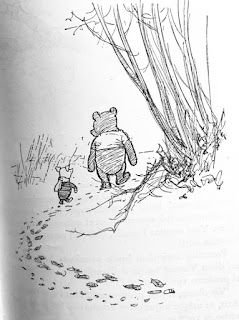Everybody is I
‘Everybody is I.’
Yes, I know that this is lifted from chapter 25 of Shadow Doctor: the Past Awaits, by Adrian Plass (page 241, to be pedantic about it). It’s in the Shadow Doctor’s sermon at the scruffy church:
I remember reading about a man who came across three words when he was less than ten years old that profoundly changed his life as the years went by.
‘Everybody is I.’
Those were the words. As far as he could work it out, ‘Everybody is I’ meant that every person was as important to themselves as he was to himself… He was just a bit-part in the lives of every single person he met, just as they were the support cast in his. And although he didn’t understand it at the time, that awareness was to become a crystal-clear insight into the heart of the creator. Every single person is a star in the eyes of God.
Now, many of our readers will know that the man referred to is Adrian himself. Adrian’s fictional Doctor has read one of the other books written by his own creator and been struck by this story. That paradox aside, it’s necessary to point out that the step from ‘every person is as important to themselves as I am to myself’ to ‘every single person is a star in the eyes of God’ isn’t actually a self-evident logical clincher to all readers. This is a fascinating problem which deserves philosophical and theological investigation, but not here and now.
But no, the point here is that even without the logical leap from everyone being I to everyone being priceless to God, the saying still carries a profound truth that it behoves us all to assimilate, even those who are sceptical about God. ‘Everybody is I’ stands on its own as an insight into our neighbour. It means that by an imaginative step, we can and must get inside the skin, body, mind, life of any other person presented to us in our daily encounters. It forces upon us the act of trying for an instant to be that other person. To realize that she or he is facing the same struggle that we are, in their inner spiritual being.
When you try to write this down, it all looks banal. After all, we all know that we all share the same nature, etc., etc. But the point of the saying is that it forces you to make that imaginative leap into trying to be for one second that next-door neighbour, toilet cleaner, cabinet minister, sex worker, celebrity, terrorist…
One of us once got into trouble in a polite gathering for suggesting that we should try to imagine things from the terrorist’s point of view. Apparently this was a shocking bridge too far. But this is just where being a writer comes in. I’m sure that crime writers are able to think like criminals — how else could they devise their labyrinthine plots? And every creative writer must surely think themselves into even the most obnoxious of their characters.
I would go a step further: a really good writer of fiction not only inhabits their characters, they deeply respect them. They do not rubbish them. Perhaps they encourage a gentle laugh at their foibles, but they affirm them. Because Everybody is I. One might almost say that the writing creator loves all her characters. Each is a star in her eyes.
E. & C. W.

'One man's terrorist is another man's freedom fighter.' I am not justifying terrorism, but there is some truth in that statement. People who begin revolutions, or embark on 'campaigns of terror', vary greatly in their causes, e.g. the French Revolution, Irish republicanism in the 1970s, the fight against apartheid, the struggle to found modern Israel, etc.
ReplyDeleteFrom a literary POV, I'm thinking of terrorists in literature, e.g. the central protagonist, who is a pretty repulsive individual, in Joseph Conrad's bleak novel 'The Secret Agent'. The best villains in literature are those who are recognisably three-dimensional and human. As creators and readers, we don't justify their actions but we don't demonise them either, because all human beings have a darkness inside them. It is the gift of an author to create characters who may do terrible things but also excite our pity as well as our horror. (Shakespeare's 'Macbeth' is a towering example of this: it's my favourite tragedy of his.)
Fay Weldon says 'Give all your characters a need' and I've found that such helpful advice for making sure characters end up sounding realistic.
ReplyDelete